Explainer: What are likely scenarios for Iran’s retaliatory strike against Israel?
By Ivan Kesic
The statements issued by senior Iranian political and military leadership in recent days, including the Leader of the Islamic Revolution Ayatollah Seyyed Ali Khamenei, suggest that retaliatory action against the Israeli regime is imminent.
All options are on the table and Tehran is carefully weighing its options to make the illegitimate regime in Tel Aviv “regret its crimes”, to invoke the words of Ayatollah Khamenei.
More than a week has passed since Israeli warplanes bombed the consular section of the Iranian Embassy in the Mezzeh neighborhood of the Syrian capital Damascus, which led to the assassination of a senior commander of the IRGC’s Quds Force, Brigadier General Mohammad Reza Zahedi, his deputy General Mohammad Hadi Haji Rahimi, and five of their companions.
An airstrike carried out inside Syria without its consent is in contravention of the United Nations Charter, which prohibits the use of force against the territorial integrity or political independence of any state.
Apart from that, it also violated Iran’s sovereignty as the diplomatic mission is considered the property of the country to which the facility belongs, in this case, the Islamic Republic of Iran.
The reckless attack on the diplomatic facility considered Iranian soil made Iran the fifth regional victim of Israeli-American aggression in the last six months, after Palestine, Syria, Lebanon and Yemen.
Israel had been warned more than ten years ago. pic.twitter.com/X8HsPUxqCf
— Press TV 🔻 (@PressTV) April 8, 2024
Is Iran militarily capable of striking the Israeli regime?
Iran’s military has seen phenomenal progress over the years, despite cruel sanctions, indigenously manufacturing world-class drones, missiles and fighter jets capable of hitting targets far away.
Pertinently, the Islamic Republic of Iran has never attacked any country. The impressive arsenal in possession of the Islamic Republic, however, is used only for defensive purposes.
For any retaliatory military action, Iran possesses a wide assortment of military technology for precise long-distance strikes, which it has demonstrated whenever the need arises.
Iran has a massive arsenal of ballistic, quasi-ballistic, cruise and hypersonic missiles it has developed amid sanctions and embargo, by far the largest in the region and one of the four largest in the world.
Due to unique conditions over the past decades, Iran has focused its long-range military capabilities on ballistic missiles, unlike virtually all other countries that rely on aviation.
Iran developed the first medium-range ballistic missiles capable of reaching all regional enemy bases in the 1990s, followed by miniaturization of models with improved accuracy.
Larger ballistic missiles with which Iran can easily reach the occupied territories today are Shahab-3, Ghadr-110, Fajr-3, Ashura, Sajjil, Emad, Qiam-1, Rezvan, Khorramshahr and Kheibar.
In addition to these large models with a 1-ton warhead, Iran also has smaller models such as the Dezful, Kheibar Shekan and Haj Qasem, mostly with a half-ton payload.
An important asset in Iran's missile arsenal is the new precision-guided Fattah hypersonic missile with a terminal speed of Mach 13 to 15, as well as the new Fattah-2 glider version.
Speaking of long-range cruise missiles, Iran operates the Soumar, Meshkat, Ya-Ali, Hoveyzeh, Abu Mahdi, Paveh, Talaiyeh and Qadr-474, also supersonic models, as well as Ababil, Arash, Shahed-131, Shahed-136, Shahed-238 long-range loitering munition.
There are also unconfirmed reports about Iran acquiring the Russian P-270 MVE Moskit (SS-N-22 Sunburn), 3M54-1 Kalibr and P-800 Oniks supersonic cruise missiles, which give it a bigger edge.
Iran also has an enviable fleet of combat drones, including Shahed-129, Shahed-149 Gaza, Shahed 171 Simorgh, Shahed 191 Saegheh, Karrar, Kaman-22, Mohajer-6, Mohajer-10 and Fotros, which can carry various bombs and air-to-ground missiles.
Apart from that, the Islamic Republic can also use manned attack aircraft for strikes, but it is unlikely that it would risk the lives of pilots and one of its most expensive equipment.
It should be emphasized that all the equipment mentioned above refers to a direct strike from Iranian soil, and if allied resistance movements join it, the diversity of the arsenal increases significantly.
What are the potential targets of Iran’s retaliatory action?
Iranian military officials have repeatedly warned that the country’s indigenous missiles can reach the occupied territories and have the power to decimate the occupied cities of Tel Aviv and Haifa.
It is a matter of speculation where exactly Iran will strike in response to the cowardly terrorist attack on the Iranian consulate building in Damascus, but there is the likelihood that it could be deep inside the occupied territories to make the regime regret its crimes.
Going by the previous strikes carried out by Iran and the Axis of Resistance in recent years, it is to be expected that the target would be vital – military bases, industrial infrastructure, ports, intelligence headquarters or regime buildings.
Due to the high sophistication and precision of Iranian weapons, the only danger for ordinary settlers in the occupied territories is the debris of their own interceptor missiles, either in the case of successful or unsuccessful shooting down.
One of the likely targets is the Israeli military infrastructure in the Golan Heights, an occupied Syrian territory, which is often used for aggressive and illegal attacks against Lebanon and Syria.
Coastal targets of great importance include the naval and cargo ports of Haifa, Ashdod and Eilat, which are used by the Israeli navy and are crucial for the regime's international trade.
There have been a string of attacks on these ports in recent months by the Islamic Resistance in Iraq and the Yemeni military, but the Iranian strike, if and when it happens, would be more damaging.
Palmachim Airbase is also a possible target since it is an important base for Israel's aviation, missile and space program. Other important airbases are Nevatim, Hatzerim, Hatzor, Ramat David and Tel Nof.
Although the regime has vacated its embassies in many countries in anticipation of an Iranian response, there is very little likelihood of the Iranian military breaching the sovereignty of any other country.
In the event of escalation on the part of the Tel Aviv regime, it is easily possible that one of the targets will be the Dimona nuclear center, one of the key locations of the illegal Israeli nuclear program.
So, practically, all options are currently on the table for the Iranian armed forces.
"We Will Make Them Regret"
— Press TV 🔻 (@PressTV) April 8, 2024
Here is how the Leader and Iranian officials reacted to the Israeli terror attack on the country's consulate in Damascus. pic.twitter.com/PmgBGwcdAU
What do Iranian officials say about retaliation?
The rogue regime’s terrorist attack drew sharp condemnation from senior Iranian political and military leaders, who vowed a decisive and definitive response, which appears to be on the way.
A day after the attack, the Leader of the Islamic Revolution Ayatollah Seyyed Ali Khamenei said the brave Iranian men would punish the Zionist entity and make the evil regime “regret its crime.”
President Ebrahim Raeisi stated that the terrorist attack will not go unanswered and that the perpetrators and supporters of this heinous crime will be punished by the Iranian military.
Iran’s parliament speaker Mohammad Baqer Qalibaf, in his reaction, said the era of Israel’s US-backed bullying in West Asia is over and that the Iranian nation will respond in a way that will hasten the Zionist entity's demise.
Iranian foreign ministry in its statement underscored the Islamic Republic's legitimate and inherent right to a decisive response based on international law and the United Nations Charter.
Foreign Minister Hossein Amir-Abdollahian, during his visit to Syria on Monday, said Tehran will definitely respond to and punish the regime, while also holding Americans responsible for it.
Major General Hossein Salami, chief of the Islamic Revolution Guards Corps (IRGC), said the enemy will certainly receive a response, adding that no action against the Iranian nation goes unanswered.
Palestinian activist in ICE detention 'missing' after medical emergency
Any enemy miscalculation will be met with ‘unprecedented’ response: Iran army chief
VIDEO | Press TV's news headlines
Hamas urges mediators to curb Israel’s violations of Gaza ceasefire
Islamic Revolution anniv. rallies to span 1,400 cities, draw 7,700 media personnel: Official
Palestinian journalist and Press TV contributor briefly arrested by UK police
Iran advises US to act independently of ‘destructive’ Israeli influence amid nuclear talks in Oman
VIDEO | 'Not in my name': Pro-Palestinian rally held in Sydney against Israeli president's visit


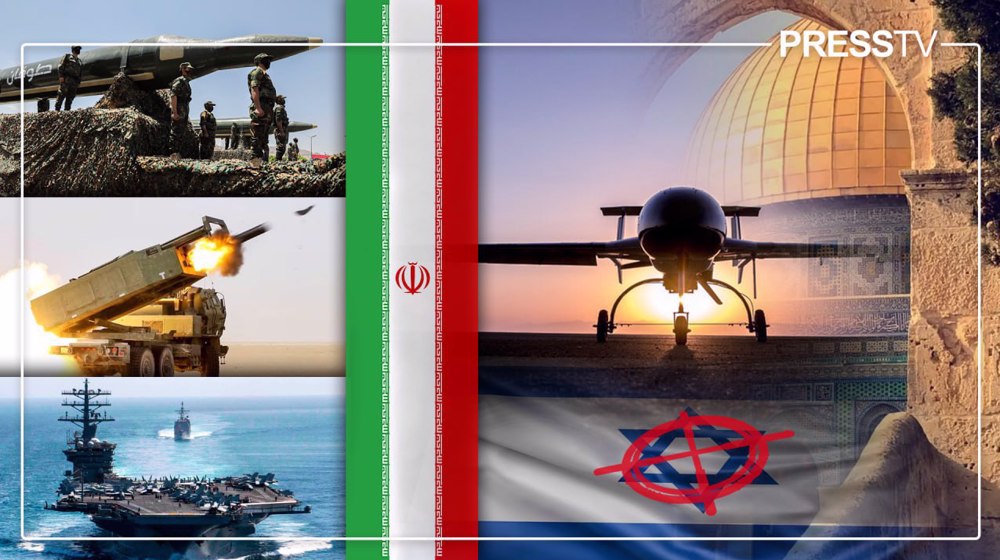
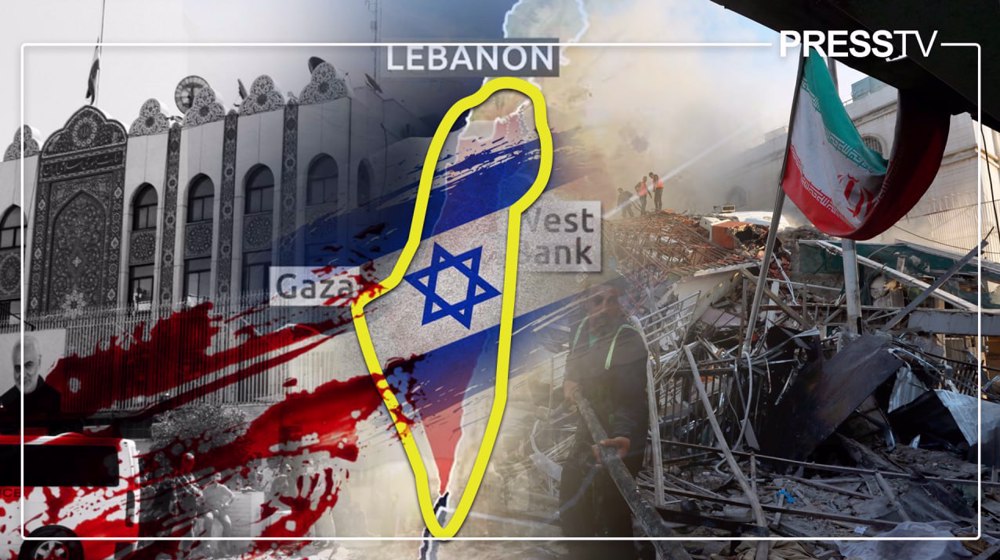
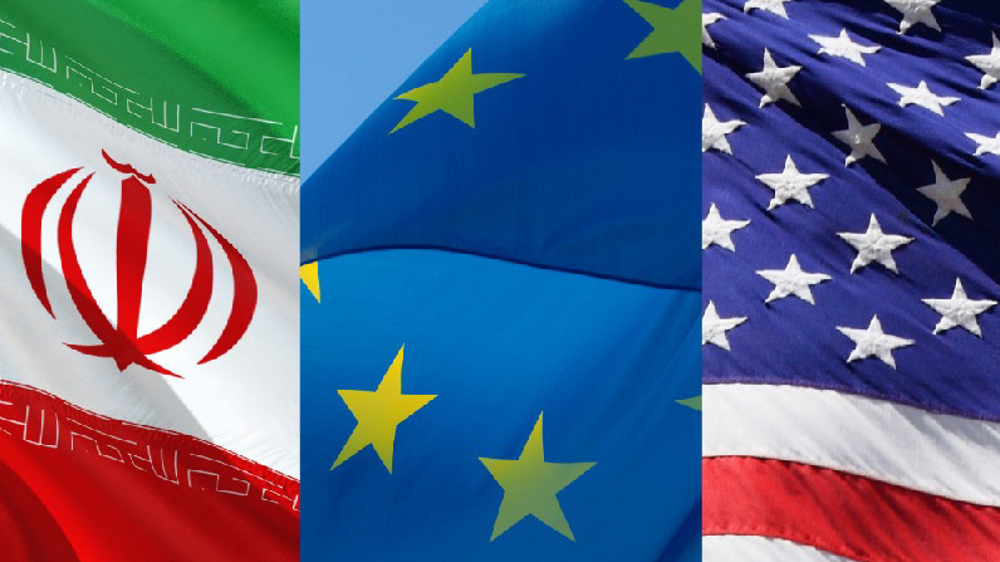
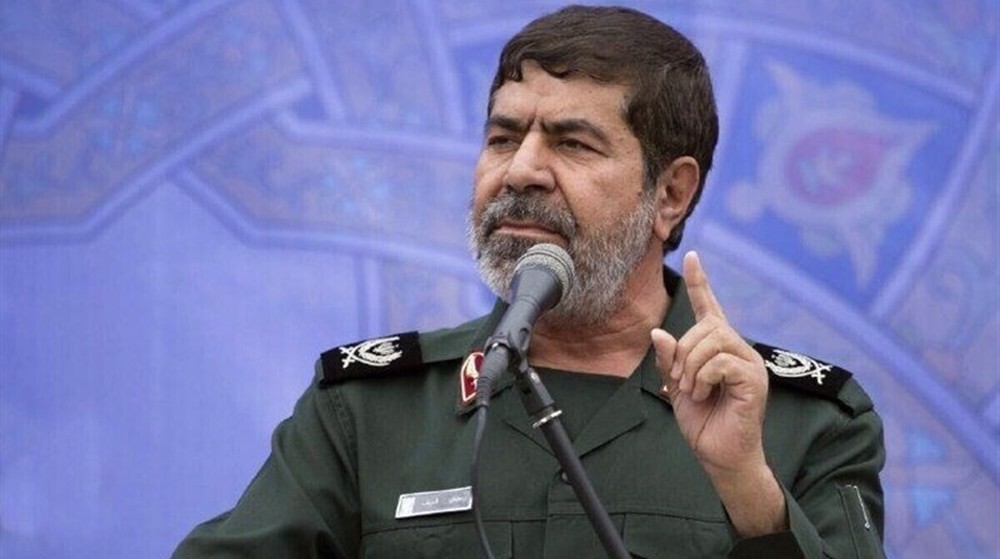
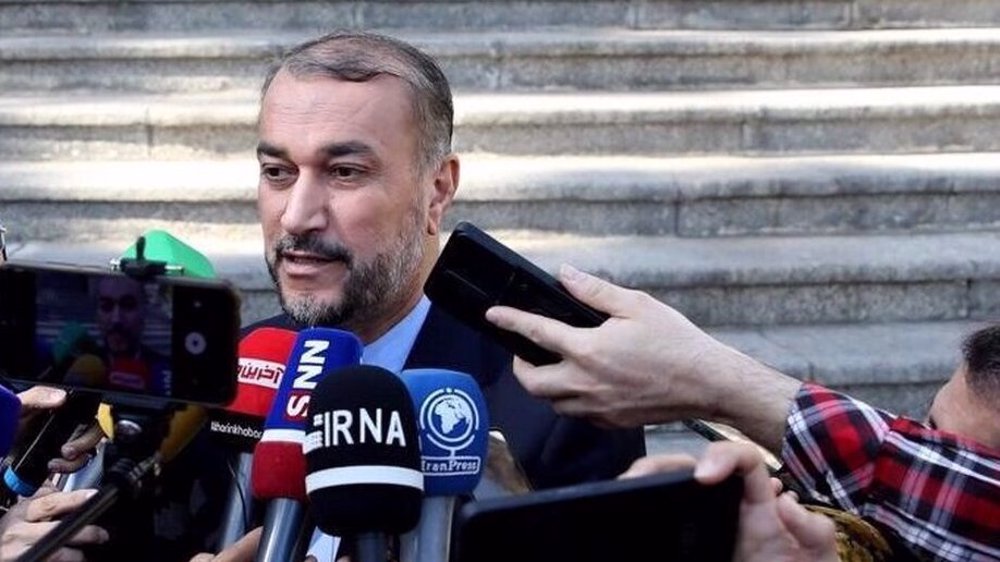



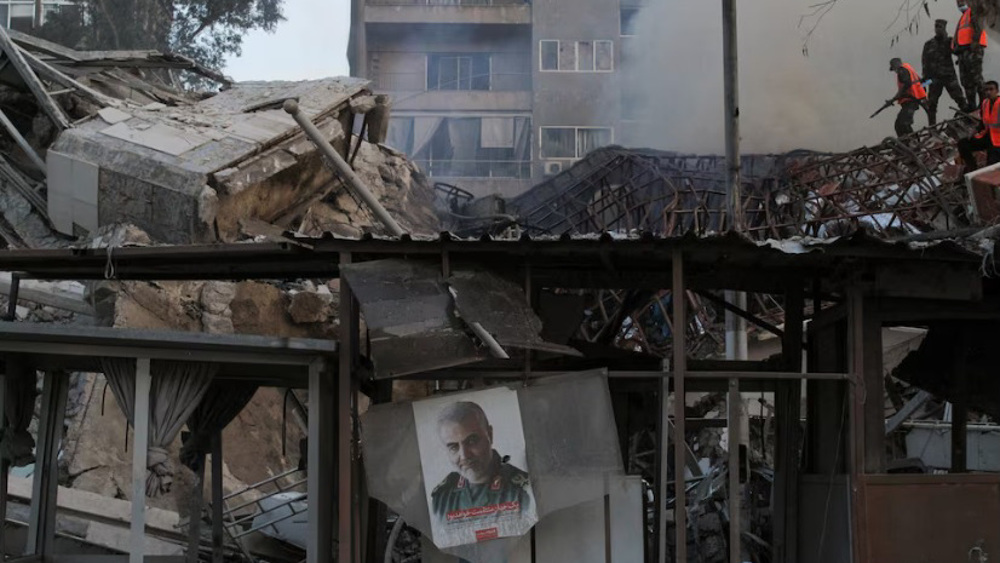
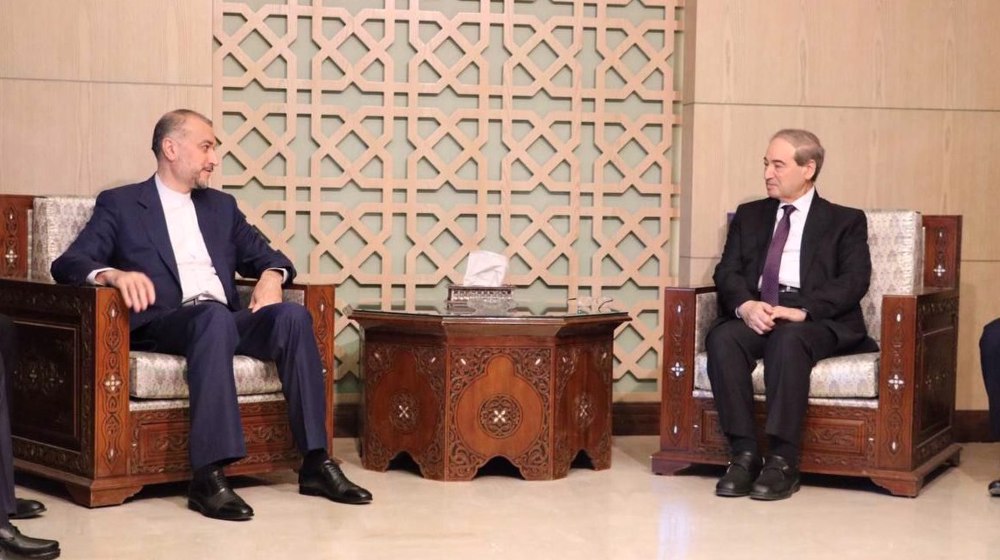
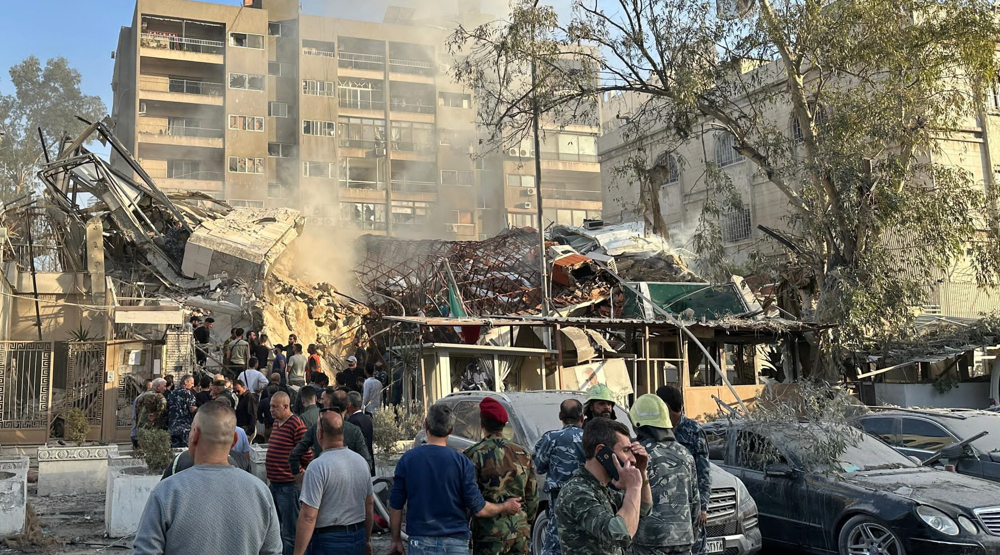
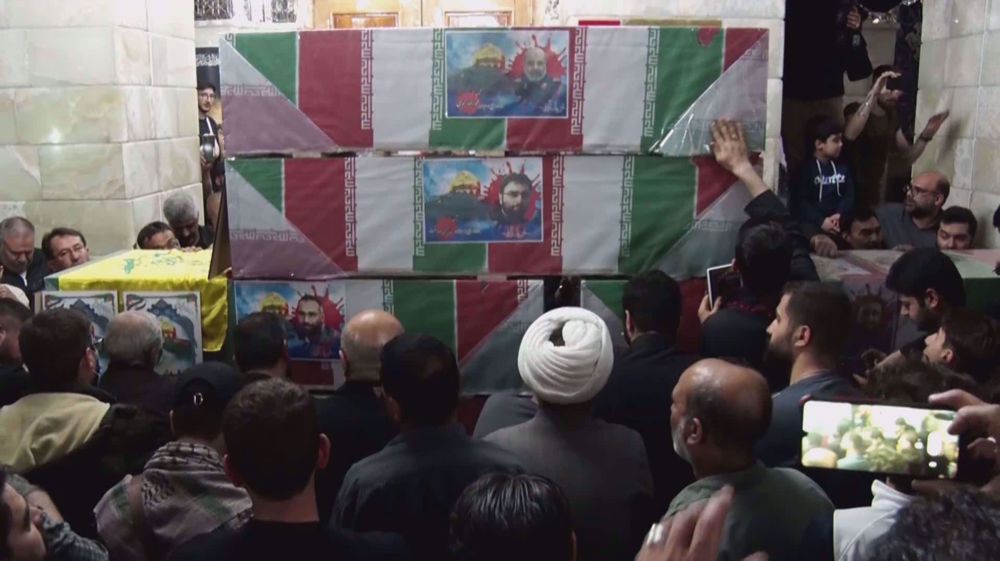
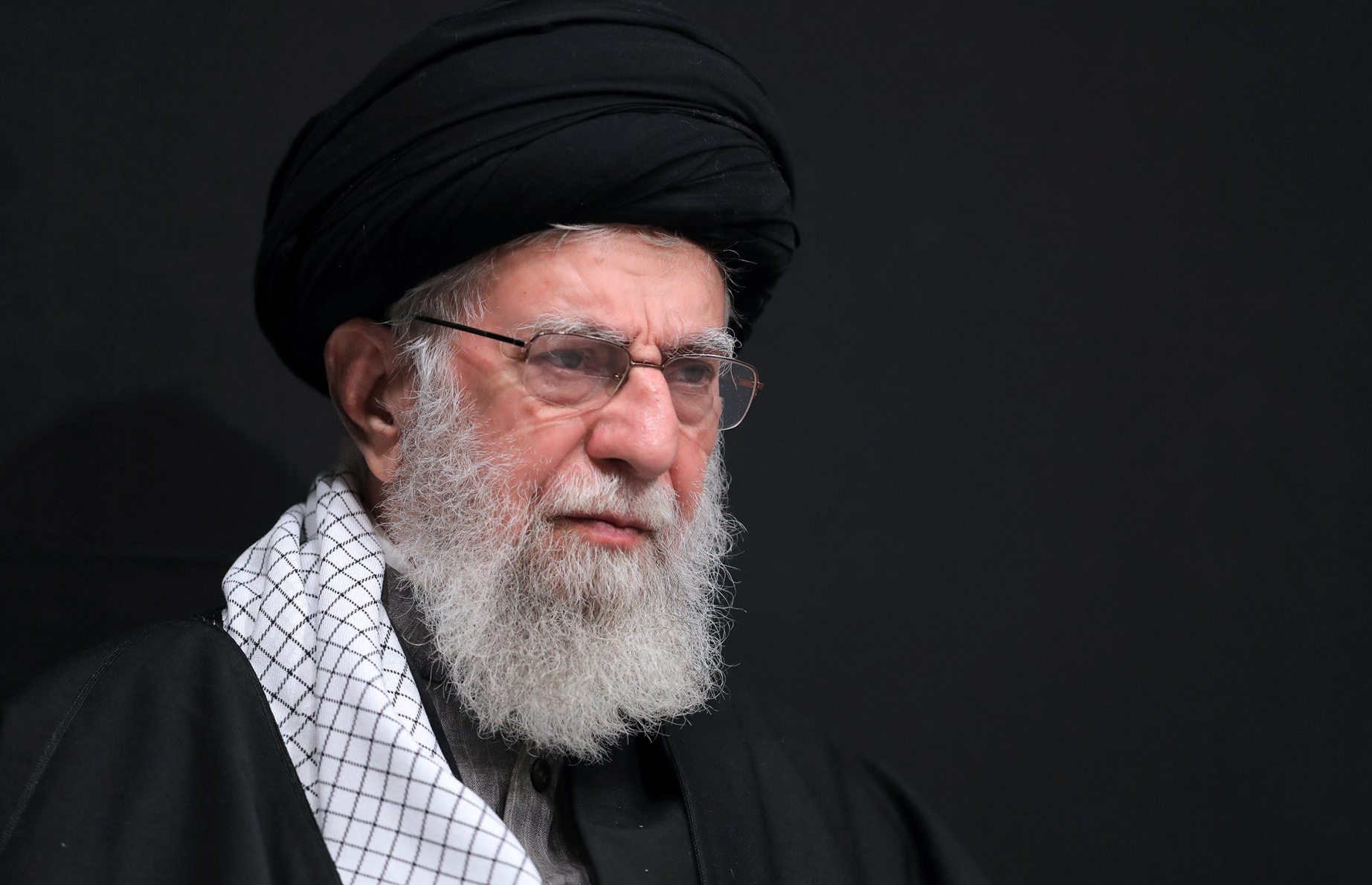

 This makes it easy to access the Press TV website
This makes it easy to access the Press TV website